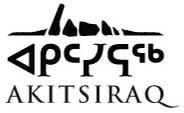
Iqaluit is the capital of the Canadian territory of Nunavut, its largest community, and its only city. It was known as Frobisher Bay from 1942 to 1987, after the large bay on the coast on which the city is situated. In 1987, its traditional Inuktitut name was restored.
The University of Toronto Faculty of Law is the law school of the University of Toronto. The Faculty's admissions process is the most selective of law schools in Canada and is one of the most selective in North America. The Faculty has consistently been ranked as the top law school for Common Law in Canada by Maclean's since it began to publish law school rankings. The Faculty offers the JD, LLM, SJD, MSL, and GPLLM degrees in law.

Pond Inlet is a small, predominantly Inuit community in the Qikiqtaaluk Region of Nunavut, Canada, located on northern Baffin Island. To the Inuit the name of the place "is and always has been Mittimatalik." The Scottish explorer Sir John Ross had named an arm of the sea that separates Bylot Island from Baffin Island as Pond's Bay, and the hamlet now shares that name. On 29 August 1921, the Hudson's Bay Company opened its trading post near the Inuit camp and named it Pond Inlet, marking the expansion of its trading empire into the High Arctic.
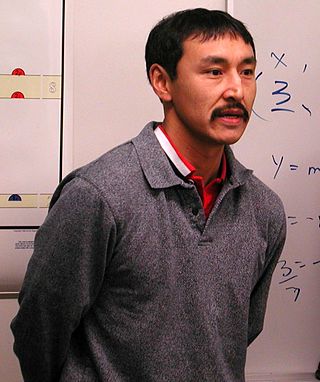
Paul Okalik is a Canadian politician. He is the first Inuk to have been called to the Nunavut Bar. He was also the first premier of Nunavut.
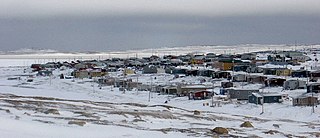
Sanikiluaq is a municipality and Inuit community located on the north coast of Flaherty Island in Hudson Bay, on the Belcher Islands. Despite being geographically much closer to the shores of Ontario and Quebec, the community and the Belcher Islands lie within the Qikiqtaaluk Region of Nunavut, Canada.
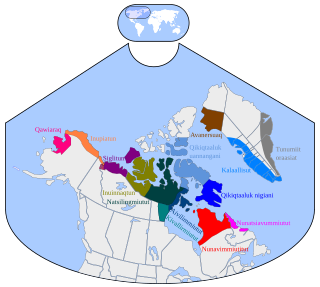
Inuktitut, also known as Eastern Canadian Inuktitut, is one of the principal Inuit languages of Canada. It is spoken in all areas north of the tree line, including parts of the provinces of Newfoundland and Labrador, Quebec, to some extent in northeastern Manitoba as well as the Northwest Territories and Nunavut. It is one of the aboriginal languages written with Canadian Aboriginal syllabics.

Same-sex marriage has been legal in Nunavut since 20 July 2005. The Canadian territory began granting marriage licences to same-sex couples upon the passage of the federal Civil Marriage Act. In October 2003, Premier Paul Okalik announced that same-sex marriages performed in other jurisdictions would be legally recognized in Nunavut.

Nunavut Arctic College is a public community college in the territory of Nunavut, Canada. The college has several campuses throughout the territory and operates as a public agency funded by the territorial government.
Nunavut Tunngavik Incorporated is the legal representative of the Inuit of Nunavut for the purposes of native treaty rights and treaty negotiation. The presidents of NTI, Makivik Corporation, Nunatsiavut, and the Inuvialuit Regional Corporation, the four regional land claims organizations, govern the national body, the Inuit Tapiriit Kanatami (ITK) as its board of directors. NTI continues to play a central role in Nunavut, even after the creation of the Government of Nunavut. As the successor of the Tunngavik Federation of Nunavut, which was a signatory of the Nunavut Land Claims Agreement on behalf of Inuit, NTI is responsible for ensuring that the Nunavut Land Claims Agreement is implemented fully by the Government of Canada and the Government of Nunavut and that all parties fulfill their obligations.
The University of Victoria Faculty of Law is a law school at the University of Victoria in Victoria, British Columbia, Canada. The school grants JD, JID, LLM, and PhD degrees in law.
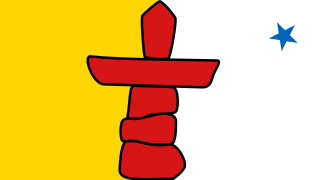
Nunavut is the largest and northernmost territory of Canada. It was separated officially from the Northwest Territories on April 1, 1999, via the Nunavut Act and the Nunavut Land Claims Agreement Act, which provided this territory to the Inuit for independent government. The boundaries had been drawn in 1993. The creation of Nunavut resulted in the first major change to Canada's political map in half a century since the province of Newfoundland was admitted in 1949.
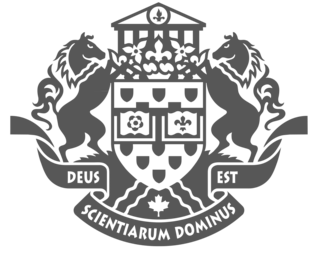
The University of Ottawa Faculty of Law is the law school at the University of Ottawa, located in Ottawa, Ontario, Canada. Established in 1953, the faculty is today divided into Civil Law and Common Law sections, the two formally recognized legal traditions in Canada.

The Law Society of British Columbia is the regulatory body for lawyers in British Columbia, Canada.
The Inuit Broadcasting Corporation (IBC) is a television production company based in Nunavut with programming targeted at the Inuit population of Nunavut. Almost all of its programs are broadcast in Inuktitut. Some are also in English. IBC shows center on Inuit culture. The company has five production centers in Nunavut, all staffed by Inuit. Founded in the early 1980s, the IBC was the first indigenous-language television network in North America.

Higher education in Nunavut allows residents of this Canadian Arctic territory access to specialized training provided at post-secondary institutions. There are some unique challenges faced by students wishing to pursue advanced training in Nunavut, a vast territory stretching across Arctic Canada from Hudsons Bay to the north pole. The territory was split from the Northwest Territories in 1999, following a successful plebiscite which affirmed Inuit desires to establish an independent political jurisdiction. Covering one-fifth of Canada's area and over 60% of its coastlines, the territory had a population of 31,153 in 2010.

Inuit Nunangat is the homeland of the Inuit in Canada. This Arctic homeland consists of four northern Canadian regions called the Inuvialuit Settlement Region, the territory Nunavut (ᓄᓇᕗᑦ), Nunavik (ᓄᓇᕕᒃ) in northern Québec, and Nunatsiavut of Newfoundland and Labrador.
The Nunavut Teacher Education Program (NTEP), formerly the Eastern Arctic Teacher Education Program (EATEP), is an important college / university teacher education program in the territory of Nunavut and is offered through Nunavut Arctic College (NAC). This program provides Inuit from Nunavut with the opportunity to work toward a Bachelor of Education degree while remaining in the territory.
Madeleine Redfern is a Canadian Inuit politician, who was elected mayor of Iqaluit, Nunavut in a by-election on December 13, 2010. She was the city's mayor until 2019.

Simonie Michael was a Canadian politician from the eastern Northwest Territories who was the first Inuk elected to a legislature in Canada. Before becoming involved in politics, Michael worked as a carpenter and business owner, and was one of very few translators between Inuktitut and English. He became a prominent member of the Inuit co-operative housing movement and a community activist in Iqaluit, and was appointed to a series of governing bodies, including the precursor to the Iqaluit City Council.

Victoria Kakuktinniq is a Canadian Inuk fashion designer from Nunavut. Under her label Victoria's Arctic Fashion, Kakuktinniq hand-stitches clothing such as parkas, kamiit, and other accessories. Her work has been described as a major influence in contemporary Inuit fashion. Kakuktinniq has described her work as a means of preserving Inuit traditional skills of sewing and clothing production, which has historically been a significant aspect of Inuit culture. In particular, she advocates for handmade fur garments as sustainable fashion.
